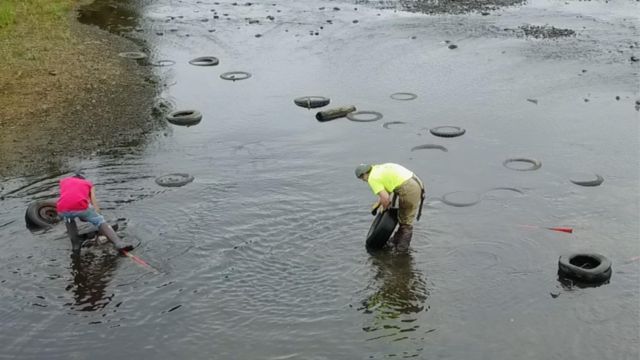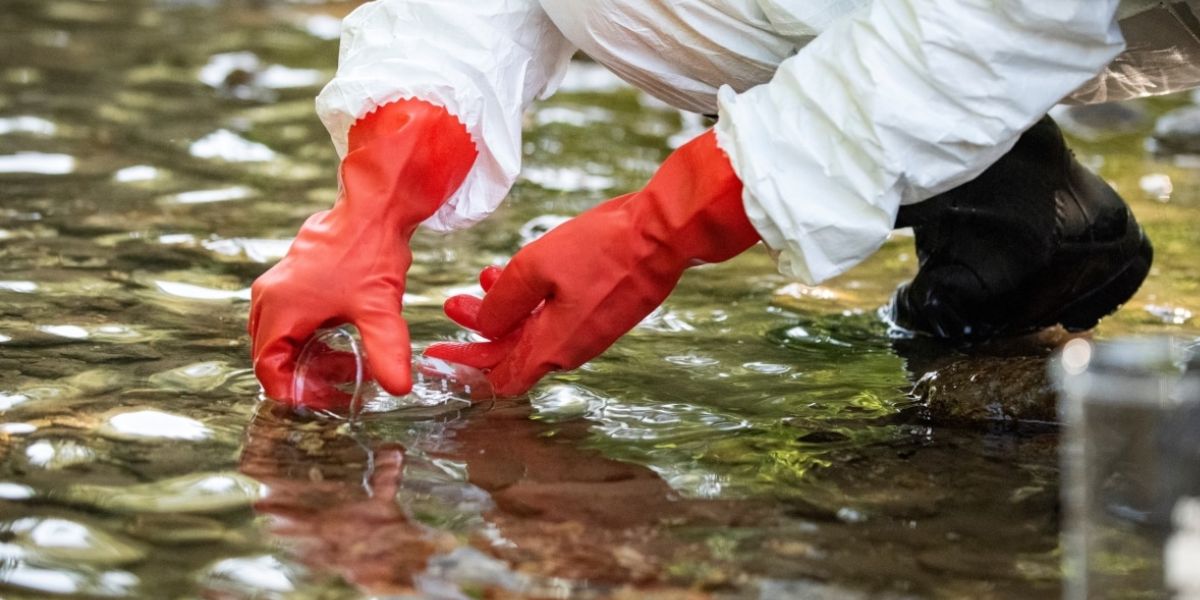In Bridgeport on Friday, a New Jersey-based business entered a guilty plea to a felony Clean Water Act violation for intentionally contaminating a Connecticut brook in July 2019.
The U.S. Attorney for the District of Connecticut said in a press release that the National Water Main Cleaning Company, or NWMCC, has renounced its right to be indicted.
While renovating a sizable culvert pipe in Cheshire five and a half years ago, NWMCC allegedly intentionally released a pollutant into Cuff Brook, according to the prosecution.
According to reports, the unapproved release of uncured geopolymer mortar contaminated the brook and killed over 150 fish.
The Chicago-based Carylon Corporation is the owner of NWMCC. NWMCC will face three years of federal probation and a $500,000 federal penalty if the court accepts the plea deal.
Additionally, the business must pay $500,000 to support projects in the South Central Coastal Watershed that would improve aquatic ecosystems and are overseen by CT DEEP, the Connecticut Department of Energy and Environmental Protection.
According to court records and affidavits, NWMCC won the contract with the Town of Cheshire after submitting the lowest proposal to fix an 11-foot culvert pipe that was in poor condition beneath Marion Road.
To stop uncured geopolymer mortar from leaking into Cuff Brook, the town mandated that the work be done in a dry area with environmental controls.
A representative from the Cheshire Department of Public Works was on site every day when NWMCC started work on July 15, 2019. Prosecutors claim that NWMCC sprayed the pollutant into the culvert pipe between July 16 and July 18, 2019, without the necessary environmental controls.
Workers at the facility worked through a lot of rain on July 17, 2019, which caused the pollution to leak into Cuff Brook. A homeowner of Cuff stream in Cheshire discovered dead fish and discolored water with an oily sheen in the stream the next day.
According to reports, the water had a chemical stench akin to that of lighter fluid.
After conducting an investigation, CT DEEP concluded that NWMCC was accountable for the pollutant’s release, which killed over 150 fish and contaminated the stream. According to the department, it would take three to five years for the brook to revert to its original state.

Prosecutors claim that a government probe found that NWMCC knew its environmental controls were inadequate but did nothing to address them prior to or throughout the project.
According to reports, the company attempted to attribute the pollutant’s release to a single employee, but investigators found that he was not properly trained, given unrealistic deadlines, and was not made aware of the environmental risks posed by the uncured geopolymer mortar.
Even while NWMCC specializes in repairing and rebuilding infrastructure that faces public waterways, investigators also found that the company lacked a significant and thorough environmental training program for its staff, particularly with regard to the Clean Water Act.
Additionally, it is claimed that NWMCC’s bonus program has encouraged executives and site supervisors to encourage their teams to complete projects as quickly as possible.
The corporation was already functioning under a Code of Conduct at the time of the Cheshire project, according to the prosecution, following a 2014 settlement with the Massachusetts Attorney General’s Office to address civil claims related environmental contamination.
Any company operating in Connecticut that disregards environmental regulations is doing so at its own risk, according to departing U.S. Attorney Vanessa Avery.
Flu Outbreak Intensifies, CDC Urges Caution as Activity Remains High
“By prioritizing its bottom line over environmental compliance, NWMCC allowed a hazardous substance to escape into Cuff Brook, causing a fish kill and contaminating a public body of water,” Avery stated. “This prosecution under the Clean Water Act is a reminder that a profit-driven approach to environmental protection will not go unpunished in Connecticut. We thank the EPA for its invaluable work in protecting the environmental integrity of Connecticut’s waterways.”
NWMCC pleaded guilty to illegally discharging a hazardous chemical into Cuff Brook, according to Tyler Amon, special agent in charge of the EPA’s Criminal Investigation Division for New England. According to him, the business also accepted accountability for its inadequate project management of the public works project.
Bird Flu Outbreak Hits Georgia’s Commercial Poultry Flock, Officials Confirm
The date of sentencing is set on February 27.
With assistance from CT DEEP and the Connecticut Office of the Attorney General, EPA’s Criminal Investigation Division looked into the case.




